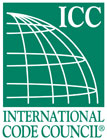
In July 2006, at a National Townhall Meeting in Denver, CO, the proposed joint venture between the International Code Council (ICC) and International Association of Plumbing and Mechanical Officials (IAPMO) to produce one mechanical and one plumbing code for use across the country was unveiled. [See pp. 10-11 in August 2006 PM Engineer] While development of one mechanical and one plumbing code for use across the country may be commendable from some points of view, the potential sacrifices incumbent to the process must be evaluated closely before any final commitment takes place. I'd like to identify several key issues that must be addressed before this concept becomes a reality.


IAPMO has put together task groups to address some important issues related to the UPC. One group looked at all the standards in the UPC and determined it to be appropriate to recommend incorporation of all its referenced standards throughout the code. This may seem harmless; however, both ICC and IAPMO have Evaluation Services (ES) that would remain in direct competition with one another.
Another task group looked at drainage pipe sizing. The IPC method was discussed, and the inconsistent areas were identified in relation to the UPC. I was told that the problem areas with the UPC sizing methods were clearly demonstrated. However, the group stated they could not change their sizing method because their membership would not be prepared for such drastic changes. So what they agreed upon is to recommend the IPC drainage sizing method be included as a new appendix. This appears to be a standard approach to keep provisions out of the code text.
This concept is unacceptable for typical everyday code regulations such as drainage pipe sizing. How can a code provide a minimum set of provisions when there are sizing methods that allow different pipe sizes? Minimum in this application would be defined as the single lowest-how can you have two lowest? This is a fundamental flaw in the UPC structure.
Another task group looked at air admittance device technology for incorporation into the UPC. They elected not to endorse it. They did agree to list the "pros and cons"
SIDEBAR: General Timeline of ICC/IAPMO Negotiations
I. Exploratory Discussions (Summer 2005)
Fundamental purpose of these discussions was to see if ICC and IAPMO could find a mutually acceptable way to produce a single plumbing code and single mechanical code in support of the ICC mission.Two key goals for ICC:
- Further the ICC mission of a single family of codes
- Keep governmental members involved in how the new codes are developed
II. Memorandum of Understanding (MOU) (September 2005)
- Each side made a commitment to try to create the joint venture
- MOU provided the framework for subsequent discussions on substantive issues
- The principles in the MOU focused on jointly creating codes that would become part of the I-Code family
III. Little Rock, AR (November 2005)
Negotiating teams (executive committee and senior staff) from each side met for a full day and identified key issues:- Code development process
- Relationship of new codes to other I-Codes, including cross-references
- Relationship between the new codes and the International Residential Code (IRC) and International Fuel Gas Code (IFGC)
- Whether the agreement would include ancillary services such as training and certification
IV. San Antonio, TX (February 2006)
An extensive discussion of key issues and each party's values and goals took place.
For ICC:
- Integrated family of codes
- Governmental role
- Importance of the plumbing code to their identity
- ANSI accreditation
- Sincere desire on both sides to reach an agreement
- Need for intense effort to resolve issues in order to produce joint codes in 2009 cycle Establishment of two work groups to try and find potentially acceptable solutions regarding:
-
- Code development process
- Business arrangements, including copyright, integration with other I-Codes, role of IRC and IFGC, and training and certification
V. Negotiation Process (2006)
After the San Antonio meeting and agreement on key issues, several Task Groups (TAGs), comprised of members from each organization, were created:- Process TAG
- Business TAG
- Education, Training & Certification TAG
- Voting TAG
VI. Tentative Agreement on Key Elements
(May 1, 2006)The ICC and IAPMO announced that they had reached tentative agreement on certain key elements of a venture to jointly develop one plumbing code and one mechanical code for use by the entire nation. Both organizations emphasized that this is a tentative agreement, and that any final agreement will require resolution of a number of important implementation issues. If the remaining issues are resolved, both organizations intend to hold meetings throughout the country educating their members about the benefits of the new relationship.
VII. ICC/IAPMO Proposal Discussed at Town Hall Meeting (July 15, 2006)
Details of the proposed joint venture to develop single plumbing and mechanical codes were rolled out during a National Town Hall Meeting held in Denver, CO.Source: ICC Town Hall Meeting on ICC-IAPMO Proposed Joint Venture Plumbing & Mechanical Codes (PowerPoint presentation)